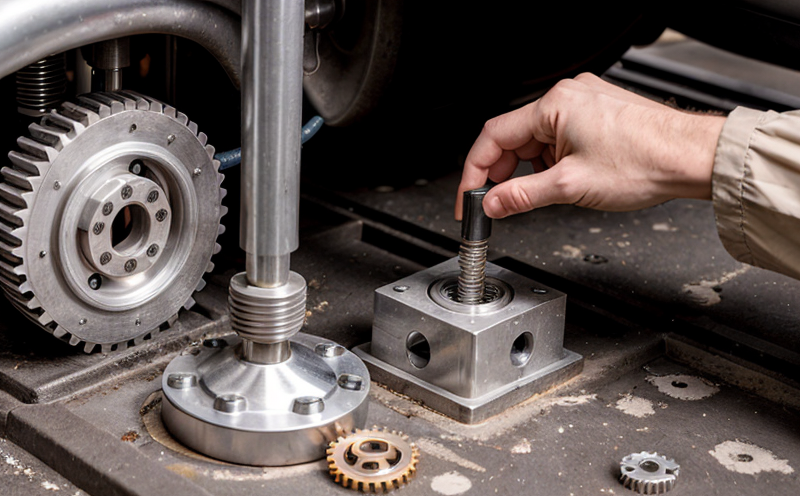ASTM F3055 Additively Manufactured Stainless Steel Tensile Testing
The ASTM F3055 standard specifies the tensile testing procedure for additively manufactured (AM) parts made of stainless steel. This service is critical in ensuring that AM parts meet the mechanical properties required by industry standards and customer specifications.
Stainless steel, particularly grades like 316L or 410, is widely used in additive manufacturing due to its excellent corrosion resistance and mechanical properties. The ASTM F3055 standard provides a standardized method for tensile testing AM stainless steel parts to ensure they meet the required strength, ductility, and yield strength.
The testing process involves preparing specimens according to the standard's requirements. Specimens are typically taken from the manufactured part after it has been heat treated and machined as necessary. The specimen preparation ensures that the test results accurately reflect the mechanical properties of the AM stainless steel part.
Once prepared, the specimens undergo tensile testing using a universal testing machine (UTM). This equipment applies uniaxial tension to the specimen until it fractures. During this process, the UTM records stress-strain data which is used to calculate key mechanical properties such as tensile strength, yield strength, and elongation.
The ASTM F3055 standard provides detailed instructions on how to perform these tests accurately. It also specifies acceptance criteria for each property measured during testing. For instance, the tensile strength must not be less than a specified value depending on the grade of stainless steel used in the part.
Understanding and adhering to ASTM F3055 is essential for quality assurance teams responsible for ensuring that additively manufactured parts meet stringent standards. Compliance with this standard helps manufacturers demonstrate conformance to industry best practices, thereby enhancing their reputation among clients who demand high-quality AM products.
In summary, ASTM F3055 tensile testing ensures that additively manufactured stainless steel components are fit for purpose by providing a reliable method of assessing their mechanical properties. This service is particularly important in industries such as aerospace, automotive, and medical devices where part integrity plays a crucial role.
Scope and Methodology
The scope of ASTM F3055 tensile testing includes the mechanical evaluation of additively manufactured stainless steel parts. This service focuses on determining the tensile strength, yield strength, and elongation of these parts.
The methodology involves several key steps:
- Specimen preparation: Specimens are cut from the AM part according to ASTM F3055 specifications.
- Heat treatment: The specimens undergo heat treatment if required by the specific alloy or application.
- Machining: Machining is performed as necessary to ensure that the specimen geometry meets the requirements of the standard.
- Tensile testing: Specimens are subjected to tensile loading in a universal testing machine (UTM).
The UTM records stress-strain data during the test, which is then analyzed to calculate the mechanical properties. Acceptance criteria for each property measured must be met to ensure compliance with ASTM F3055.
For instance, the tensile strength of a specimen prepared from an AM part made of 316L stainless steel should not be less than 250 MPa according to ASTM F3055. Similar criteria apply for other properties such as yield strength and elongation.
Industry Applications
- Aerospace: Ensuring the integrity of parts used in critical components like landing gear or engine mounts.
- Automotive: Verifying structural integrity of AM parts used in high-stress areas such as suspension systems or exhaust manifolds.
- Medical Devices: Confirming that implants and instruments comply with stringent biocompatibility requirements.
- Defense: Testing the reliability of components used in defense equipment subjected to extreme conditions.
Use Cases and Application Examples
| Use Case | Description |
|---|---|
| Aerospace Engine Mounts | Tensile testing is used to ensure that engine mounts can withstand the extreme forces generated during flight. |
| Medical Implants | The mechanical properties of AM stainless steel implants are tested to ensure they are biocompatible and durable. |
| Automotive Suspension Systems | Tensile testing verifies that suspension components can handle the dynamic loads encountered during operation. |
| Defense Equipment Components | Testing confirms that critical parts meet the durability requirements for use in harsh environments. |





